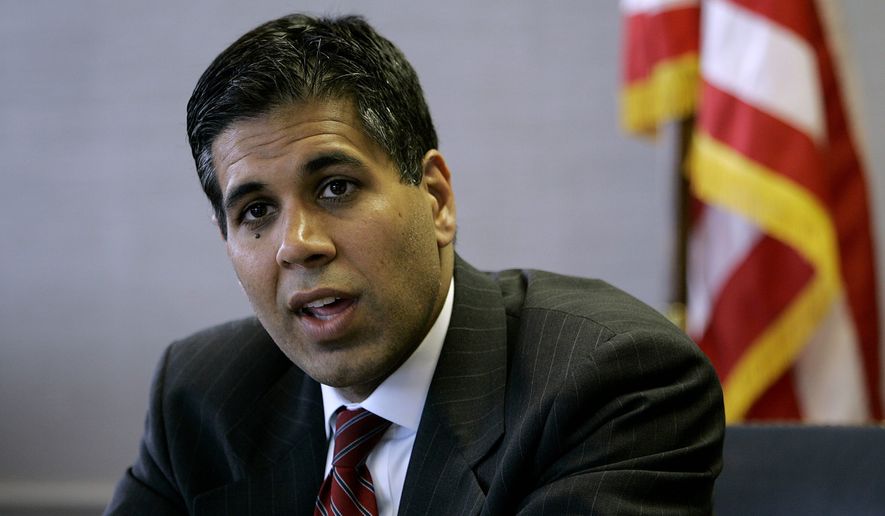Democrats weren’t able to derail Justice Neil M. Gorsuch, but they haven’t abandoned the pointed questions they aimed at him, recycling those questions Wednesday for a hearing with appeals court nominee Judge Amul R. Thapar.
From campaign finance reform cases to his ties to the conservative Federalist Society, Judge Thapar fended off the inquiries during his confirmation hearing, asking to be evaluated on the reputation he amassed during more than a decade on the federal bench.
He also batted away an attempt by Sen. Richard Blumenthal, Connecticut Democrat, to force him into a confrontation with President Trump, whose criticism of federal courts has riled critics.
“I am a proud Article III judge. We’ve been criticized from the beginning of this great country. Thomas Jefferson went after Chief Justice Marshall, and I appreciate the protection other branches provide to us,” Judge Thapal said. “It doesn’t matter to us.”
Mr. Blumenthal was nonplussed.
“It doesn’t matter to you, judge, but it does matter to the powers of the federal courts that the American public respect and trust the federal judiciary,” said Mr. Blumenthal.
Judge Thapar is Mr. Trump’s nominee to fill an empty seat on the 6th Circuit Court of Appeals — the first of what’s expected to be a series of picks to fill nearly 20 appeals court vacancies nationwide.
Democrats, who lost their battle to derail Justice Gorsuch earlier this month, are trying to figure out how to handle Mr. Trump’s other court nominees.
Sen. Sheldon Whitehouse prodded the judge on his views about campaign finance, following a line of questioning he aimed at Justice Gorsuch.
Mr. Whitehouse, Rhode Island Democrat, wants judicial nominees to criticize the state of campaign finance law following the 2010 Citizens United case, where the Supreme Court ruled the First Amendment protected corporations’ and labor unions’ right to political speech.
The senator said he rejected Judge Thapar’s past comments saying political donations are the equivalent of speech.
“Those of us who are in politics know that is a false statement,” said Mr. Whitehouse. “That is indeed a preposterous statement factually because money has a completely different effect than speech once it enters the political arena.”
Judge Thapar was prodded about his ruling in a case where he opposed campaign ethics rules for judicial candidates in Kentucky that would have limited their contributions in partisan politics.
“This was a really hard case,” the judge said. “If the Supreme Court were to say I’m wrong, then I understand that.”
Senate Majority Leader Mitch McConnell introduced Judge Thapar, who is from his home state of Kentucky, at the hearing. Mr. McConnell noted Judge Thapar received the highest judicial qualification rating from the American Bar Association.
But Democrats said they were more worried about the judge’s ties to another legal group, The Federalist Society, which is an association of conservative and libertarian-leaning legal scholars and students.
The Federalist Society helped craft a list of potential Supreme Court nominees for Mr. Trump, and both Justice Gorsuch and Judge Thapar were on the list.
Mr. Whitehouse accused The Federalist Society of “trying to bring its corporate interests to the court.”
Judge Thapar dismissed the guilt-by-association charge, asking to be judged on his own rulings.
“If you look at the entirety of my record, what you would see and what you would hear from lawyers is that I’m fair,” said Judge Thapar, quoting a criminal defense attorney who said, “I don’t know his politics, I just know he will rule by the book.”
• Alex Swoyer can be reached at aswoyer@washingtontimes.com.




Please read our comment policy before commenting.